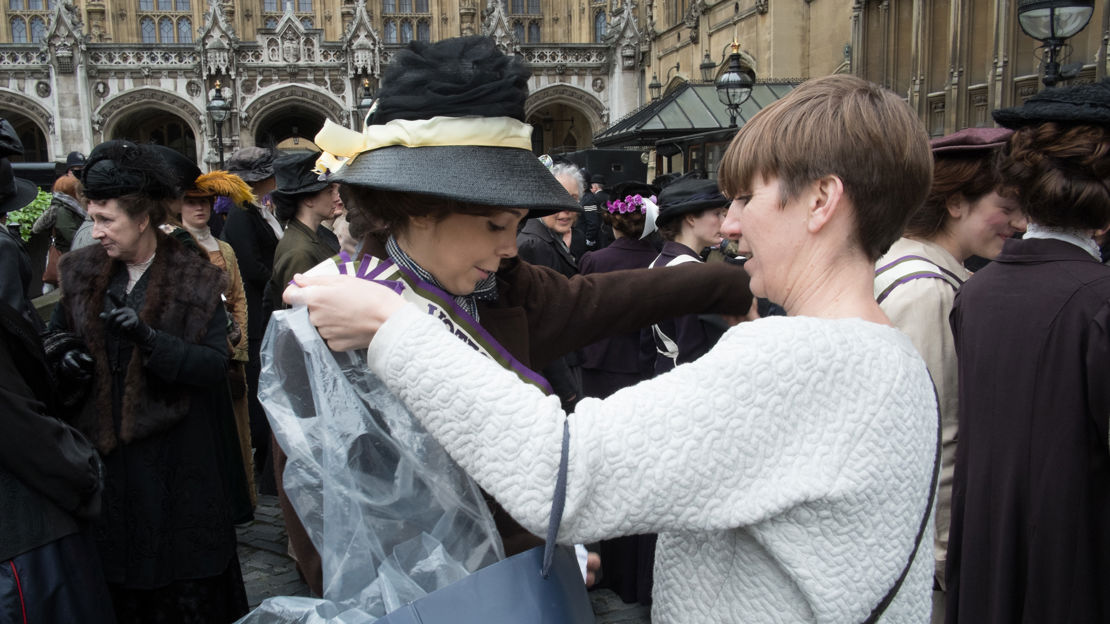Job title: Producer
Industries: Film
Alison Owen is an award-winning producer whose credits include The Suffragettes, Tulip Fever and Shaun of the Dead.
Describe your job in your own words
A producer's job begins with looking for source material for potential movie projects. I'm constantly looking for ideas for films, so I read a lot of magazines, newspaper articles and scripts, watch foreign movies that could be remade in English and have lots of conversations with agents, publishers and writers.
Once I've found source material that I think would make a good film, I have to win over the person behind the idea and acquire the rights from them. Then I need to find a writer who can turn the source material into a compelling script. To help me find the best person for the project, I'll read lots of writing samples and talk to writers' agents to get their suggestions. Usually, a producer will try to find a financier to pay for the script to be written.
I'll supervise and shepherd the script along as the writer puts together a treatment, a first draft and then a second draft. This is often the longest part of the whole producing process - to get the script right can take six months or 10 years. Once the script is ready, I'll hire a line producer to help me work out how much the film will cost to make and then I will head off to raise the finance.
You would probably talk to US studios like Warner Bros, Sony or DreamWorks, or UK players, like FilmFour and the BBC. You'd also look at raising equity finance from private investors. Before going out to raise the money, however, you might want to wait until you've got certain elements attached, such as a director and a key member of the cast. It can give you more leverage in your deal with financiers if you have top talent on board from the outset.
Once you've raised money for the film, you can start to crew up and make the film. During shooting, a producer will do everything from standing around smoking multiple packets of Marlboros to rushing around trying to make sure the whole film progresses smoothly. For example, the shooting schedule might need to change at the last minute, so you'd have to contact an actor's agent to make sure the actor can fit in with the new schedule.
Once the film has been shot, a producer has to make sure it is released properly. You have to check on numerous things: that it's going out on enough prints, that it has a decent poster or that the star is doing the right amount of interviews.
How did you get into the industry?
There is no straight career path into producing - everyone has his or her own different routes for becoming a producer.
I left university in 1982 after doing a non-vocational English degree. It was just as the music video industry was taking off. Like the whole dotcom boom era, a lot of people came out of the woodwork to announce that they were music video producers. I set up my own little company as a music producer and then got a job at Limelight Film and Video.
Soon I got my first film, Peter Chelsom's Hear My Song, off the ground. I managed to produce it by being incredibly committed and tenacious. When I announced I was setting up a film and TV unit, all the agents dug into their cupboards and sent me all the dross that everybody else had passed on. But I was very diligent, read everything and gave my feedback to the agents - it helped win me their respect.
I went to see a screening of short films one day and a Peter Chelsom short, Treacle, was playing. I thought it was a fantastic film, so I rang his agent - who I'd got to know - to ask what he was working on. He said Chelsom had a script he wanted to make. So, to show I was serious and not flaky, I sent a bike around to pick up the script, read it in an hour-and-a-half and got straight back to the agent. I raised the money for the film in under six months.
What advice would you give to someone just starting out?
You need to be tenacious, have good attention to detail and also you have to appear confident - even if you are not.
You also need to be a jack of all trades - you need to be able to understand the creative, business, practical and legal complexities involved in making a film. Producing suits people like me who weren't necessarily born with one outstanding skill, but are quite good at lots of things.
If you enjoyed reading about Alison's experience, why not share your story with us and showcase your skills and experience.
